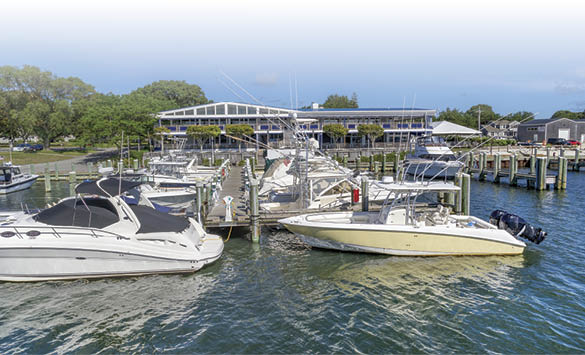Water comprises almost one-half of Michigan, so it’s easy to see why the state boasts a thriving recreational industry and leads the nation with nearly 1 million registered pleasure boats.
For boating and water safety, there are items you must legally have on your watercraft—life vests, fire extinguisher, throwable flotation device, and properly working lights—but make sure the boat and the dock are safe, too.
To help prevent accidents, the National Electrical Contractors Association says:
- All installations should be performed by a professional electrical contractor.
- All dock receptacles must comply with the National Electrical Code, which mandates a ground fault circuit interrupter (GFCI). A GFCI measures a circuit’s current and senses any imbalance (such as a discharge into the water), which trips the GFCI and cuts off the power.
- Test any GFCIs every month. Locate it along the ramp to the dock so it can be easily tested by local fire departments.
- Metal dock frames should have “bonding jumpers” that connect all metal parts to an on-shore grounding rod. This means any dock part that becomes energized by electrical malfunction will trip the GFCI or circuit breaker.
- Ask neighbors if their dock electrical systems have been inspected and are up to Code.
- Household wire is not suitable for boats.
- Do not use wire nuts (these are for solid conductor wire, which should never be on a boat) or splice connectors (can cut wire strands)!
- Fuses are rated to protect the wire, not the stereo. If a fuse blows continuously, something else is wrong.
- If you rent a dock or boat, notify the owner of safety violations immediately.
- Have your boat’s system (especially with onboard generators) checked at least annually and when something is added or removed.
- Ropes, string, masts and rigging also conduct electricity—don’t be the common ground between water and electricity





